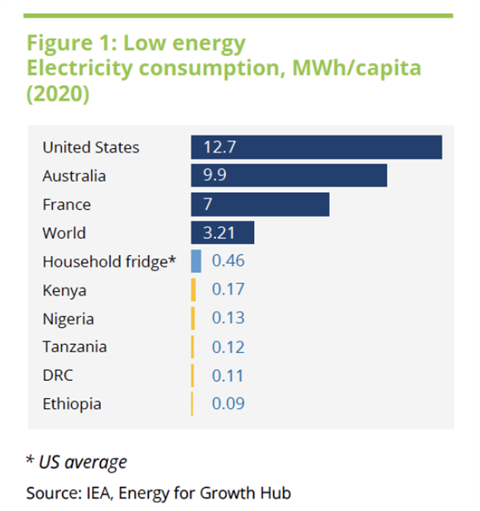Assessing Africa’s gas resource potential
February 28, 2023
 Courtesy of Hawilti Ltd.
Courtesy of Hawilti Ltd.
Developing natural gas value chains in Africa could help the region provide energy, fight poverty and enable a just energy transition, a recent study has found.
The International Gas Union (IGU) and Hawilti Ltd. recently released the Gas for Africa Report, a compilation of market research, data and interviews, to show the potential for natural gas in Africa. The African Energy Commission and the Africa Finance Corporation endorsed the report and its findings.
“Natural gas is a resource that has a significant role to play in bringing about socio-economic development and mitigating climate change in Africa,” said Rashid Abdallah, executive director of the Africa Energy Commission. “As part of a just transition, Africa requires gas to contribute to eradicating energy poverty, providing electricity to almost 50% of Africans, playing as catalyst in the provision of clean cooking technologies to nearly billion Africans and creating jobs. The calls for an immediate end to all fossil fuel utilization and request for global capital investors to stop funding gas projects will severely impact Africa’s socio-economic development.”
Africa has the lowest energy per capita in the world with a domestic demand of 160 billion cubic meters (bcm); the continent produces more than 280 bcm of natural gas, about 6% of the world’s supply, the report states.
Though Africa exports and stores natural gas at a high clip (the continent is also home to more than 8% of proven global reserves), the continent’s 1.2 billion people, the fifth-largest population in the world, only accounts for 3% of global emissions, with the emissions share for the 48 Sub-Saharan countries (sans South Africa) totaling only 0.55%.
“Access to modern energy in Africa is imperative for its development, for having an ability to respond to climate change, and for gradually decarbonizing its economies,” said Madam Li Yalan, president of the IGU, which represents members from more than 80 countries covering approximately 90% of the global gas value chain.
“Gas is one of the keys to unlock this access, and it is also a fuel for producing stable and flexible energy needed to integrate more renewables,” Yalan said. “Using its gas resources together with renewable energy technologies, Africa can build energy systems compatible with a climate- or carbon-neutral future and underpin the continent’s sustainable economic development.”
According to the International Energy Agency, if Africa consumes 50% more natural gas (or 90 bcm per year) by 2030, its cumulative CO2 emissions of 10 gigatons would increase its global emissions share to only 3.5% by 2050.
The report said the short-term benefits natural gas offers to Africans include immediate emissions reductions that come with replacing higher-emitting energy sources such as biomass, wood, charcoal, coal and heavy fuel oil – replacing coal with natural gas in power generation would achieve a reduction of 50% in greenhouse gas and more than 90% in air pollution emissions.
“We are delighted to provide stakeholders and policymakers with an overview of natural gas dynamics in Africa and hope it will be valuable to underpin dialogue and pragmatic actions to eliminate energy poverty,” said Mickael Vogel, director and head of research at Hawilti. “As an Africa-based research and consultancy company, we will continue to highlight the diversity and complexity of African energy markets and we see gas as a critical contributor to the continent’s development and just energy transition.”
The long-term decarbonization trajectory for Africa involves developing gas infrastructure and markets with the integration of variable renewable generation, carbon capture, renewable gases and hydrogen. The report said that Africa’s goal is to leverage its 18 trillion cubic meters of natural gas to rebalance pressing needs of local development with lucrative export revenues.
“The global energy market is in an unprecedented state of flux, opening significant opportunities for exploration and development of gas in Africa,” said Samaila Zubairu, CEO of Africa Finance Corporation. “At the same time, gas is key to helping Africa end its energy poverty quickly and affordably, by providing an alternative to wood fuel, which would lift hundreds of millions out of poverty while preserving Africa’s forests – a valuable carbon sink for the world. Gas offers further solutions for Africa’s food security challenges as a key source of critical fertilizers, while also generating needed export revenue for re-investment in renewable solutions.”
MAGAZINE
NEWSLETTER

CONNECT WITH THE TEAM









